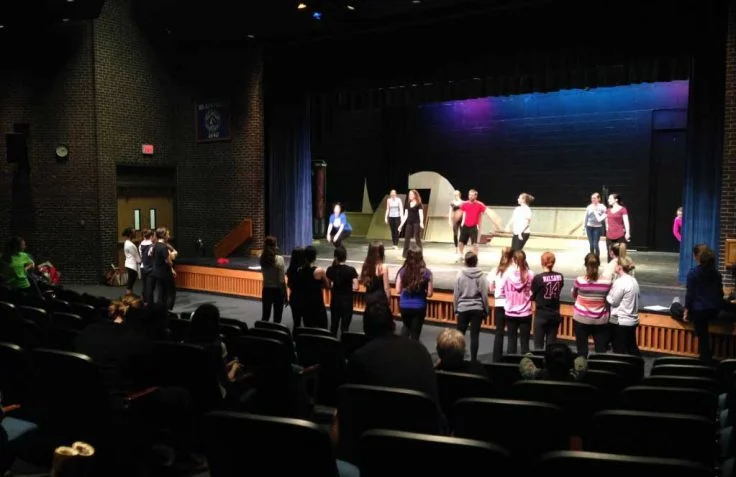Theatre in an Underfunded High School
Liam Horne
Money may not be the solution to everything, but when it comes to the funding of the arts, it sure helps. As a student at Braintree High School, a public high school just south of Boston, where the arts are the least of the school's priorities. Of course, funding put towards academic classes and research materials should take first rank in the funding hierarchy, but when it comes to extracurriculars, the school quickly favors anything but the arts. It seems no matter how the sports programs may not excel, countless amounts of money are pumped into new facilities and trainers to try to bolster the appeal of a hometown hero who scores the touchdown in a 35-7 loss.
The Braintree theatre department for those involved is a home where students can be intertwined in their school environment and express themselves through a love shared by everyone. This past year I had the opportunity to direct a play and work directly with actors. While going through the rehearsal process I had told my cast and peers to not try to be the character they were playing, but to take parts of themselves and make the character on the paper themselves. Of course, this seems like a common philosophy shared by directors and actors alike, but the ability to take oneself and be transported to another world, an escape from the hustle and stress of everyday life. Just like many theatre professionals, the lives of the students revolve around their theatrical work.
I was able to take the show and my cast to a theatre competition called Festival put on by METG. In short, it’s a statewide competition of schools hosting and performing theatre. In one venue there are eight schools, with only three moving on to the next round. There is no limit to who a school could face, and often the underfunded schools, like Braintree, are going against schools with funding and theatre classes.
This past year when competing in the festival the responsibilities of the show had to be shared by all students, in lieu of a director and mismanaged time. As aforementioned I took responsibility to direct our show, all while designing the lights, set, and working on the set construction. Now as much as we love the work we put on, the stress we undergo compared to that of schools we compete against seems unfair. While students from other schools have class time dedicated to the shows they put on, putting both in school and after school hours to produce their craft, we are pushed to the after school hours.
As this is quite the disadvantage when it comes to our time and finances, the sense of pride and humility it breeds in us students is something amazing. When talking to one of the senior stage managers, my friend Catharine Clougher, she spoke to how “being underfunded shouldn’t just be portrayed in a negative light because our students know what it means to come together and build something that they are proud of” something that students who get their materials provided for them through funding may not feel.
Theatre, at its core, can be produced with no money. No funding is needed to portray oneself in a new light, through the eyes of a made up character. But with challenges of a lessening school market for theatre and when competing against schools with a funded theatre program, the times are hard. It can make the students involved seem like their work goes unnoticed and unwanted. So for any school official or superintendent listening, we do exist. We may shroud our faces in the stage lights and act to be something we are not, but we do exist. We deserve the same monetary rights as that of your Grade A football team or basketball team.
The social stigma surrounding theatre in the schools already casts us in a negative light, making us susceptible to scrutiny from our classmates who make not think quite like us. So let’s end this cycle of not funding the theatre, and bring us students out from the shadows of the wings, into the lights of the school at large.
